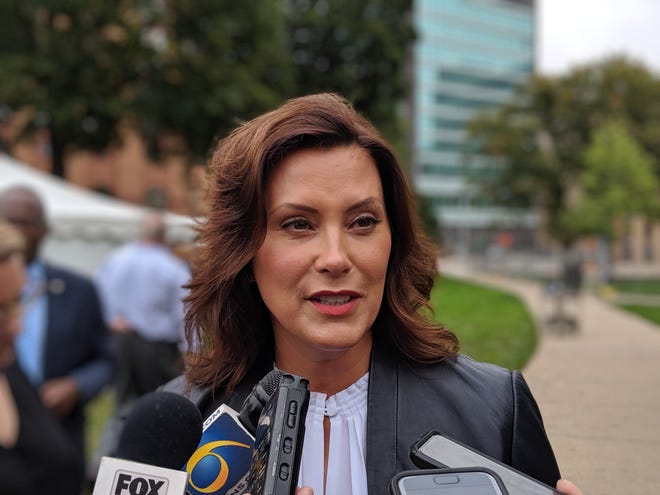Jacques: Stop treating private school students like second-class citizens
A few years ago, Martin Luther King III, the son of Martin Luther King Jr., participated in a Florida rally the day after the national holiday that honors his father.
The 2016 rally was in support of a school choice tax credit program that at the time faced a legal challenge from a Florida teachers union.
“This is about justice,” King said. “This is about righteousness. This is about freedom — the freedom to choose for your family and your child.”
That message is especially relevant today, as Democratic presidential candidates — and Democratic elected officials, such as here in Michigan — advocate against school choice, including tax credits, vouchers and charter public schools.
There could be some good news on the horizon, though. On Wednesday, the U.S. Supreme Court will hear arguments in what many observers believe could be a game changer for expanding private school programs around the country. The court took up a case out of Montana, relating to the state’s tax credit scholarship program that allowed families to choose religious schools. Depending on how broadly the court chooses to rule, it could potentially overturn so-called Blaine amendments in 37 states that block public dollars from flowing to private schools.
More:Jacques: Could this be a school choice game changer?
Michigan’s constitutional amendment is about the worst, as far as preventing any dollars from reaching nonpublic schools, even if the money is related to the general welfare of students.

An excellent example of this is a case before the state’s Supreme Court, related to whether the state can offer nonpublic schools a token reimbursement for state-required health and safety mandates, including background checks and tornado and fire drills.
In the 2017 and 2018 budgets, Republicans in the Legislature set aside a total of $5.25 million to help cover these mandates. Roughly 100,000 students attend nonpublic schools in Michigan.
The case has dragged on since 2017, and none of the funding has yet made it to any school, thanks to the lawsuit brought by the ACLU of Michigan and public school interest groups.
The court has scheduled oral arguments for early March, even though plaintiffs last week requested the court peremptorily reverse a 2018 Court of Appeals decision since the lawsuit’s defendants, along with Attorney General Dana Nessel, now believe the statute is unconstitutional.

Gov. Gretchen Whitmer and state Superintendent Michael Rice, the named defendants, weren’t in their current jobs when the lawsuit was filed, and in December they filed a brief laying out why they don’t think the reimbursements are constitutional.
Brian Broderick, executive director of the Michigan Association of Non-Public Schools, says in addition to fighting the health and safety funding, Whitmer last fall also vetoed line items that had formerly allowed nonpublic school students to participate in the state robotics program, as well as access to school safety grants, including ones that help cover costs for panic button apps.
He says the governor’s taken a “hard-line stance.”
“This makes no sense on a human level,” Broderick says. “It's an issue of fairness.”
In addition to the Montana case, defenders of private and parochial schools in Michigan point to a 2017 U.S. Supreme Court case, in which justices ruled 7-2 in favor of a Missouri religious preschool’s right to use state grant funding to make playgrounds safer.
These cases before the state’s high court and the U.S. Supreme Court could be pivotal to the future of educational opportunity in Michigan.
As David Maluchnik, spokesman for the Michigan Catholic Conference, stated in a December press release: “The days are becoming numbered for public officials to rely on a discriminatory provision of the constitution that treats nonpublic schools as second-class institutions.”
I hope he’s right.
ijacques@detroitnews.com
Twitter: @Ingrid_Jacques